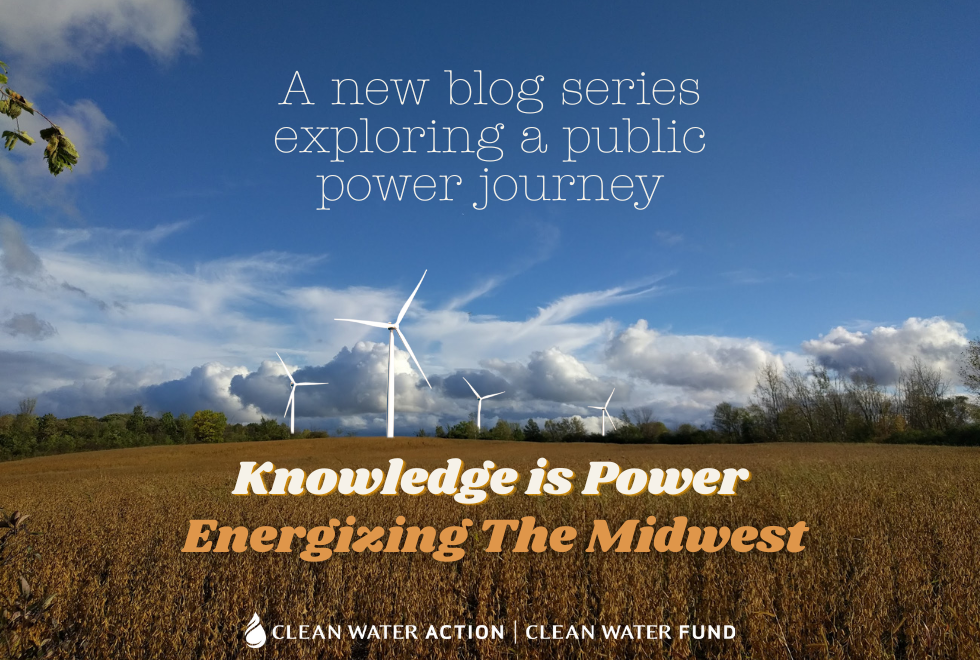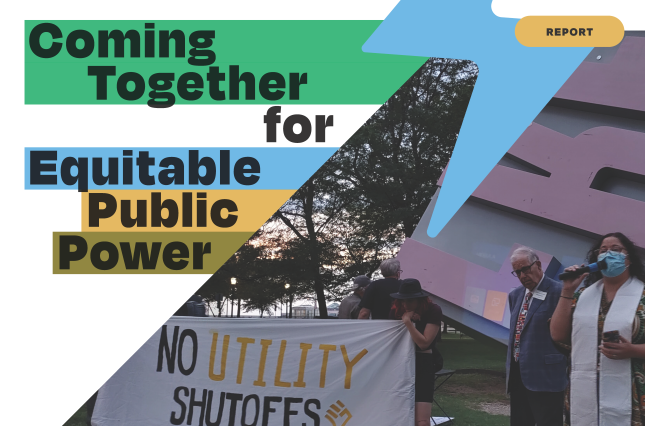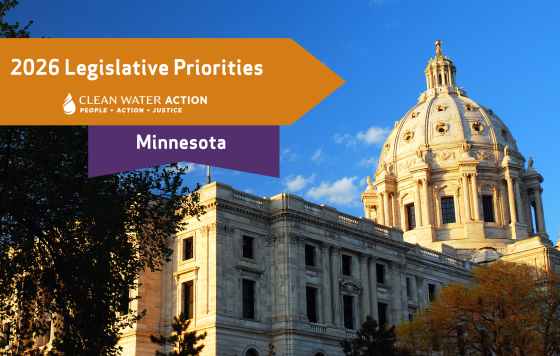
The Public Power Project is a work of passion and collaboration for a better energy future. Over the past year we took to the road and were able to see communities fighting to hold their utilities accountable, municipal utilities working hard to keep supplying power to their rural towns, and activists who are pushing their local governments to break from extractive investor owned models and transition to municipalization (creating a publicly owned power utility). Let us take you across the Midwest to share insights in this new blog series "Knowledge Is Power: Energizing the Midwest" and accompanying report, Coming Together for Equitable Public Power (read the full report at cleanwater.org/PublicPower).
Part 1: Introduction
The Public Power Project team has debated and discussed the place of public power across our country over the past year. When we started this journey we came from disparate fights centered in grid work, but seemingly unique and siloed in local communities. Our collaboration has lead to insights, knowledge, and a shared support system across the Midwest. Here is how it all began:
Clean Water had begun working to support Ann Arbor for Public Power, a grassroots citizen-led movement to push the city of Ann Arbor to municipalize and take control of our grid back from our extractive Investor Owned Utility (IOU). In the city of Highland Park, organizers with Soulardarity had taken on that same IOU, DTE Energy, years earlier. What started as a fight to ensure public lighting for their city - yes, keeping the streetlights on - had turned to fighting for accountability in DTE’s Integrated Resource Plan at our Michigan Public Service Commission. A short drive away in Chicago, researchers with the Union of Concerned Scientists were assembling principles in grid equity and preparing for the transition to renewables.
Throughout working group conversations we came to a quick conclusion: Although we were each fighting for different communities, our work was interrelated. Power is a modern human need, and everyone deserves affordable and reliable power. We left that room with a plan and a steering committee.
Our goal was to look at places across the Midwest where communities are maintaining their own energy grids, learning the sometimes complicated world of power generation, or fighting for local control over the flow of resources and capital in their communities.
Our tour first took us to Ohio, where organizers were doing the hard work of creating accountability in municipal offices. Nearby, some county administrators had already claimed the right to generate power and begun the process of finding customers. Our next trip hit a scattered set of cities in and around Iowa’s Driftless region where some small municipalities already own and run their own utilities. Several larger cities, Des Moines and Decorah, have campaigned to follow suit. We were able to interview an organizer with Democratize Com Ed in Chicago and found yet another accountability fight and a community working to move toward local control.
The remainder of our research was via video conferencing. We were able to speak to organizers in Minnesota at the Institute of Local Self Reliance where they have been charting the state of energy systems for some time. We also held focus groups with experts and engaged in organic conversations around energy issues shared across communities.
We are exceedingly pleased to share the product of our labor in the project paper, Coming Together for Equitable Public Power. Special thanks to our steering committee and all the organizers, operators and city officials who shared their lessons learned and insights for the future. We hope through this report and accompanying blog series you have an opportunity to follow us on our journey and see each fight in these communities as we have.
In this year we have learned that public power is an issue of our pocketbooks and how capital is moved through or out of your community. We learned that many investor owned utilities use the same play book to make profits for their shareholders. Public Power is a conversation that is rooted in practical efforts to supply affordable, reliable, and sustainable energy to your community. As we look toward a future that needs to rely on renewable sources of energy to slow climate change, these conversations can either happen in boardrooms - or in city halls, backyards, and amongst neighbors. I urge you to support Public Power where it exists and get involved if your community is considering taking back their grid.



